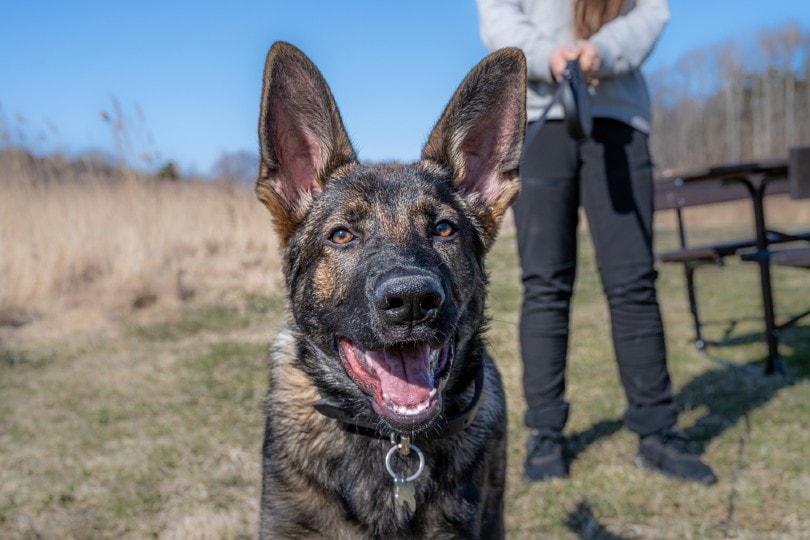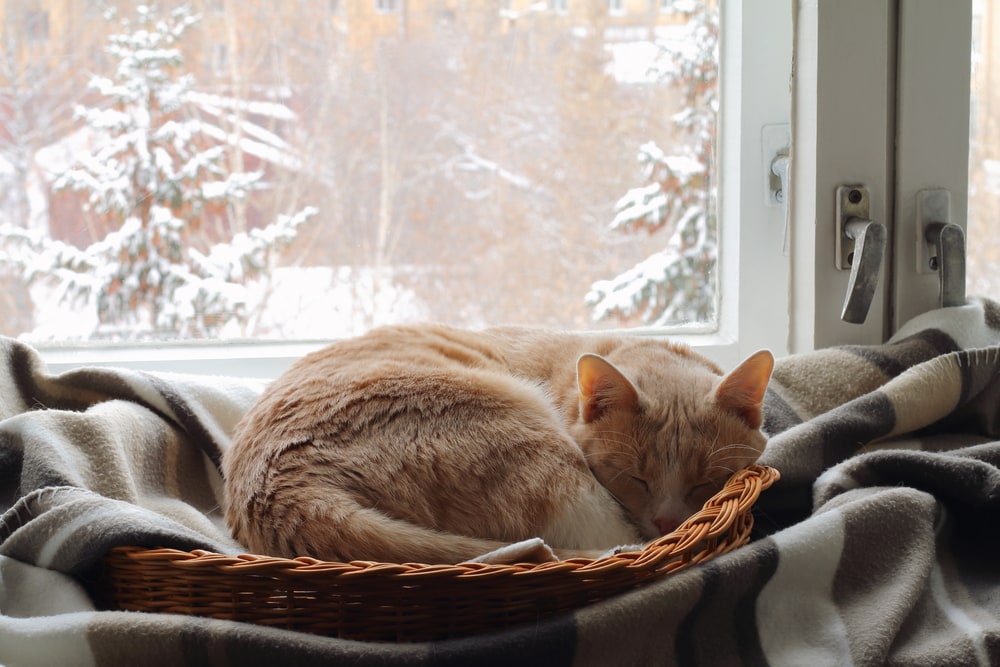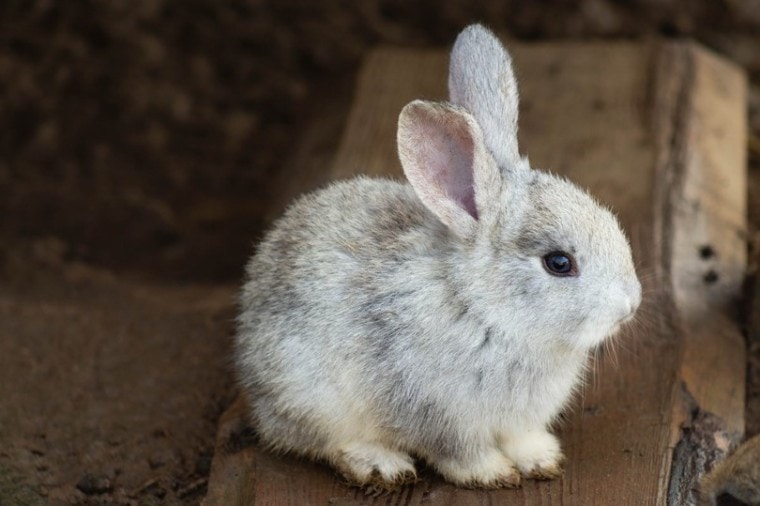
If you’ve owned a rabbit in the past, you might be aware of how quickly their health can deteriorate. Rabbits can go downhill so fast that they truly can be fine one minute and at death’s door the next. Because they are not the most robust pets, as a pet parent it’s very important to familiarize yourself with the signs that all is not well with your rabbit.
If you can pick up on the early symptoms that could indicate something serious, the chances of saving your rabbit are far better, and even if nothing can be done to save them, at least you can make sure that they don’t suffer. So, how can you tell if your rabbit might be seriously unwell, and at risk of dying?
The 9 Signs to Tell If a Rabbit Is Dying
Here are some of the signs to look out for that might suggest your rabbit is really unwell:
1. They Stop Eating
Rabbits are grazers. They eat constantly to keep their digestive system running smoothly. A healthy rabbit will eat roughage like hay, as well as small amounts of kibble and fresh leaves or vegetables. To remain healthy, they need to keep eating, so that their guts keep moving and producing feces as well as caecotrophs (edible fecal balls that are eaten to maintain gut health). Therefore, a reduction in appetite can rapidly lead to a condition called gut stasis, where the gut stops working. Sadly, this condition can be fatal if treatment is not started early.
Rabbits can stop eating for many reasons, including bad teeth, infection, pain, or stress. As well as being a consequence of not eating, gut stasis can sometimes be the cause of a reduction of appetite. Monitoring your rabbit’s appetite is a crucial part of caring for them as a pet.
2. They Stop Drinking
Like every living being, rabbits need water to live. Every rabbit is different, and some might lap water from a bowl whereas others prefer to drink from a water bottle. However, if you notice that your rabbit’s water isn’t needing to be filled as often, or if you don’t see them drinking when you normally would, you must contact a veterinarian. Dehydration can happen quickly, especially in warm weather, and it can be rapidly fatal.
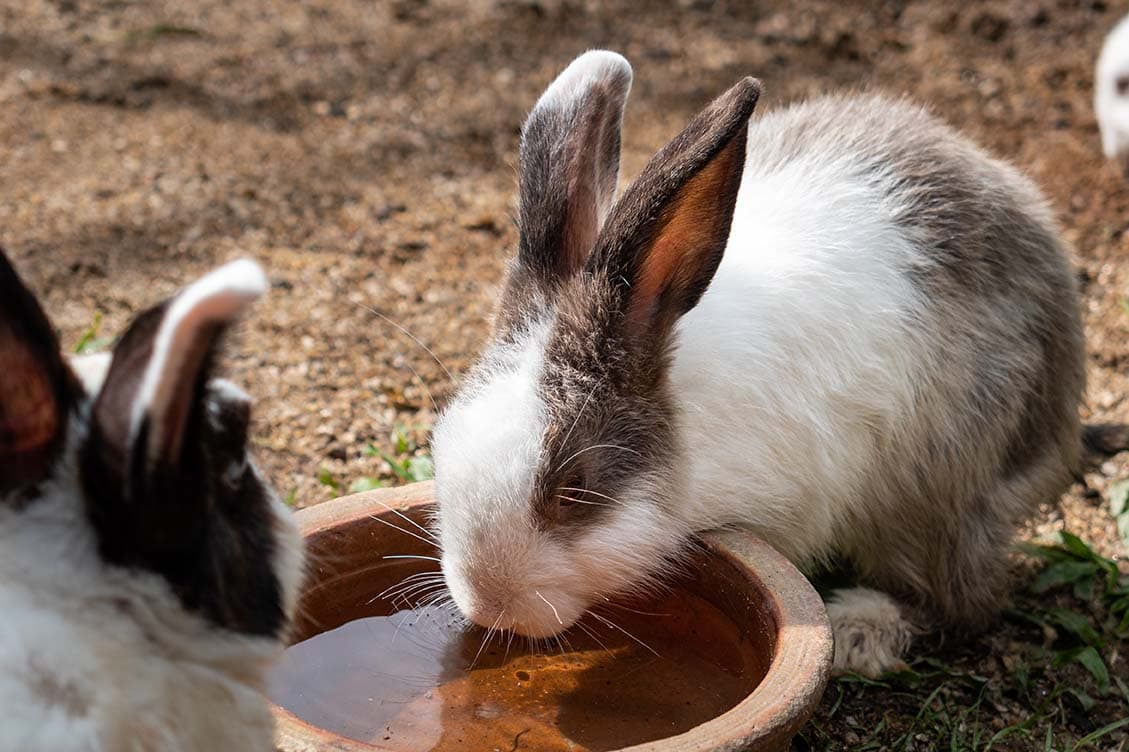
3. They Stop Passing Feces
Just like a reduction in appetite, a reduction in fecal output is also a very concerning sign in a rabbit. This is because it is also a sign of gut stasis (also known as ileus). If your rabbit stops producing as much poop, they can get very sick, even within 24 hours.
4. They Feel Cold
Rabbits are not very good at regulating or maintaining their body temperature. In a crisis, their circulatory system will work hard to focus the blood supply on the essential organs like the heart, lungs, and brain. Therefore, you might find that their ears, paws, and nose are cool to the touch.

5. They Are Not Moving as Much
Rabbits tend to be quite active. They often have bursts of energy where they hop around, and even when they’re feeling less energetic, they usually putter about grazing. If your rabbit doesn’t come to greet you when they normally would and isn’t interested in moving around much, it could be a sign that they are very unwell.
6. Their Breathing Is Different
Rabbits are prey animals, which means that they have to be very poor, injured, or under a lot of stress before their behavior gives away their vulnerability. If you notice that your rabbit is breathing faster, slower, with an open mouth, or with more effort or noise, these could be signs that your rabbit is very unwell.
In particular, rabbits are prone to an airway infection called “snuffles,” which can be very serious. So, don’t be tempted to keep an eye on any breathing concerns you have. Contact your veterinarian right away.

7. They Are Less Responsive
Is your rabbit able to focus on you? Are they interacting with their surroundings as normal? If they are less responsive it could mean that they are in shock or disoriented. This could mean that the blood supply to the vital organs is not sufficient, they are weak due to dehydration, or they have a condition affecting their brain, like the parasite E. cuniculi. It could also mean that they have had, or are about to have, a seizure.
8. They Are Unable to Stand
If your rabbit is weak and unable to stand it could mean that they are severely dehydrated, anemic, or in shock. If a rabbit stops moving, it means they are unable to reach food and water and cannot keep warm. This means that they could also have a low body temperature (hypothermia) or low blood sugar.
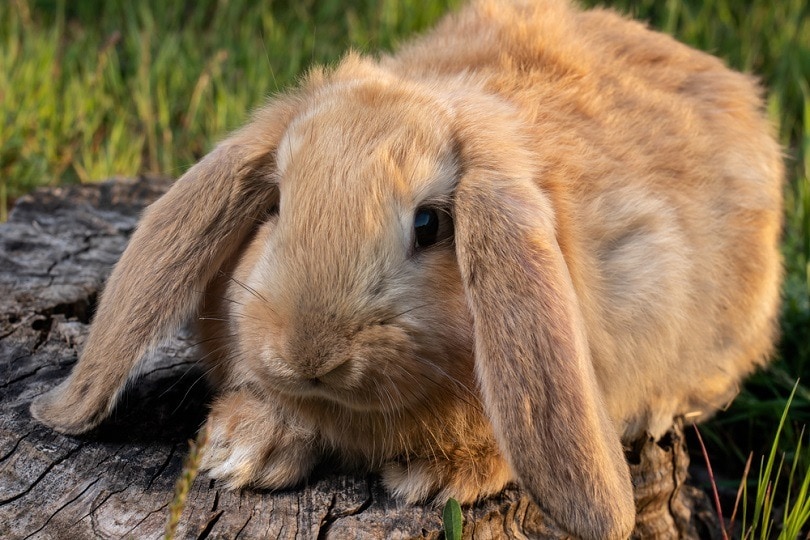
9. They Are Making Strange Noises
Although rabbits sometimes make certain sounds, they are mainly silent animals. You may hear them grind their teeth when they are stressed, and they can scream when they are stressed or scared. But they can also make strange groaning or screeching noises when they are very unwell and close to death.
How to Save a Dying Rabbit
If you spot any signs that your rabbit is not quite right, it is important to act fast to give them the best chance of survival. The most important things that you can monitor at home are how much your rabbit is eating and how much poo they are producing. It’s also important to keep an eye on their drinking, either by ensuring that you see them drink or by monitoring how often you have to refill their water.
If your rabbit is showing signs that they could be really unwell, you should contact a veterinarian right away for an urgent appointment. If you are able, you can try to syringe water and a syringable food into their mouth. However, it’s important to make sure that they are conscious enough to take food and water before you try, otherwise they risk aspirating. You should also try to keep them warm, by wrapping them in a warm blanket and using wheat bags or another pet-safe heat source.
Once at the clinic, your vet will be able to do a full examination to try to determine the cause of your rabbit’s symptoms. If needed, they will also start heat therapy, give warm fluids via a drip, and give pain relief. Your rabbit might also need medication to help get their guts moving again or other medical treatment.
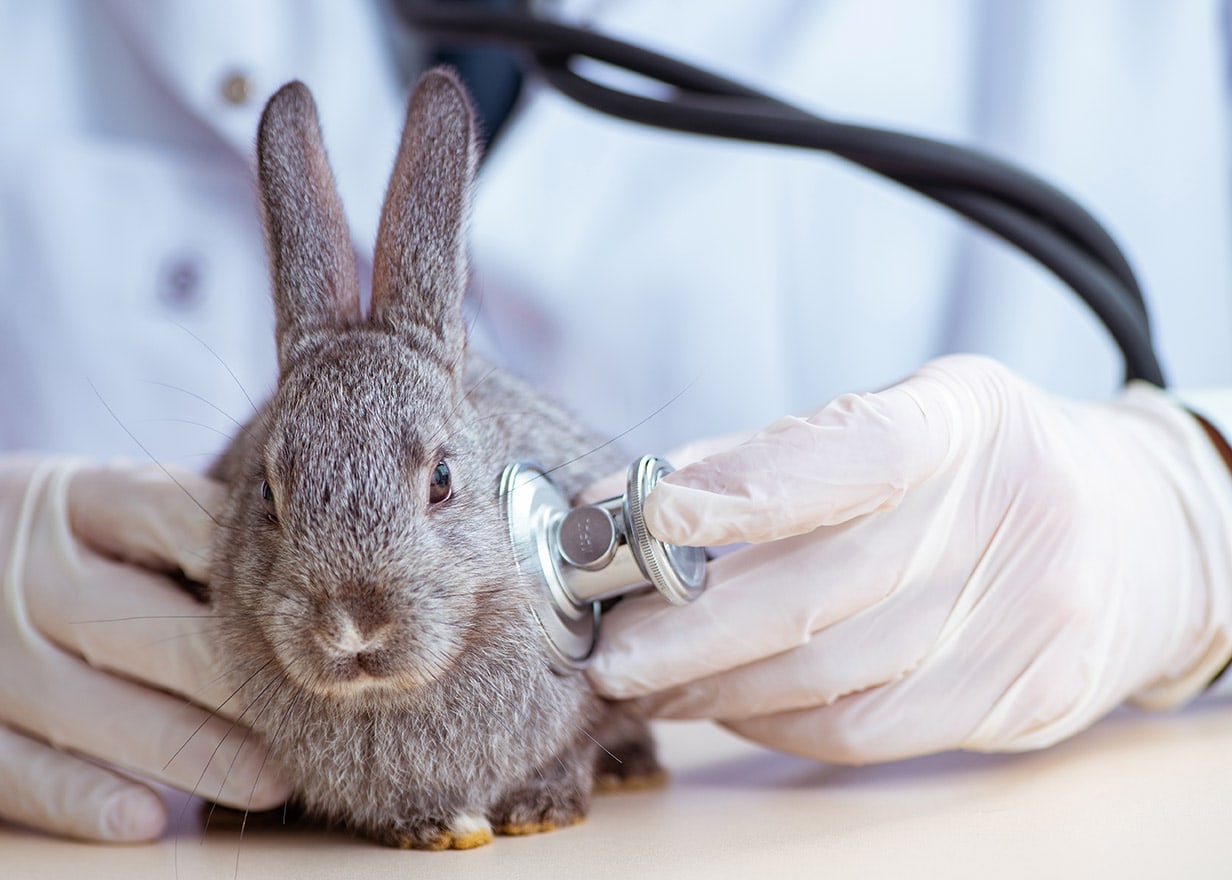
Euthanasia
Sadly, it’s not always possible to save an unwell rabbit, especially if the signs are severe. If the veterinarian feels that your rabbit is too unwell to make a recovery, or that they are suffering too much, they might recommend putting them to sleep. Although this is a devastating decision, because all pets are part of the family, it is sometimes the best option for them.
How to Comfort a Dying Rabbit
If you feel your rabbit is suddenly very unwell and might be dying, you should take them to the veterinarian straight away. Even if you think there is nothing that can be done, the vet will be able to provide pain relief or help them pass peacefully and comfortably.
However, if you know that your rabbit is coming to the end of their days but you need some time to come to terms with it, there are some steps you can take to make their final days as comfortable as possible. Firstly, you should ensure that they have food and water freely available. If they are off their food, you could try offering them some of their favorite tasty treats. You should also make sure that they are warm and comfortable, perhaps by bringing them indoors if they are normally outside, and by providing plenty of comfy bedding.
Finally, if they are used to contact you can give them plenty of cuddles, strokes, and general tender loving care. On the other hand, it’s worth remembering that if your rabbit doesn’t normally enjoy human contact, they may prefer not to be bothered too much.
Final Thoughts
If you have a pet rabbit, it’s important to get to know their habits so that you can spot the signs quickly if something is wrong. Monitoring their food intake, water intake, and fecal output are all crucial parts of caring for a rabbit and allow you to seek veterinary advice as soon as anything changes. Rabbits can become very poor very quickly, so getting veterinary help swiftly will give the best chance of making sure your rabbit lives to continue their healthy, happy life.
See also:
- Can Rabbits Wear Collars & Harnesses Safely? Is It Humane?
- How Many Pet Rabbits are There in the UK? (Statistics to Know)
- Can Rabbits Die From Loneliness?
Featured Image Credit: monikasmigielska, Pixabay




